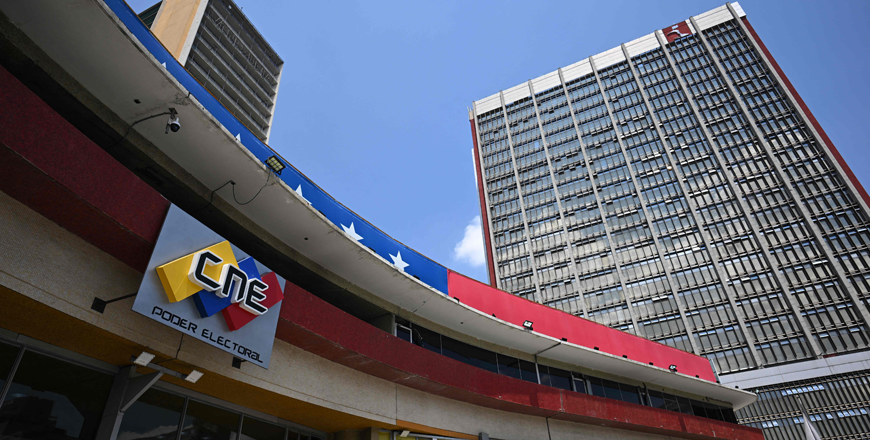CARACAS — Venezuela will go to the polls on July 28 to choose a president, the electoral authority said on Tuesday, with incumbent Nicolas Maduro widely expected to stand and his main challenger precluded from running.
The date was chosen by the ruling-party aligned National Electoral Council (CNE), after Maduro’s government and the opposition agreed in Barbados last year to hold a free and fair vote in 2024 with international observers present.
That deal saw the United States ease sanctions against the oil-rich South American country, allowing US-based Chevron to resume limited crude extraction and leading to a prisoner swap.
The agreement required that opposition candidates be allowed to appeal court rulings disqualifying them from holding office.
Since then, however, the supreme court loyal to Maduro upheld a 15-year ban on opposition primary winner Maria Corina Machado.
Judges ruled in January that Machado had been “involved... in the corruption plot orchestrated” by former opposition leader Juan Guaido, now in exile.
The “plot”, they said, was responsible for “criminal” sanctions against Venezuela.
The judges also confirmed the ineligibility of a possible opposition stand-in — two-time presidential candidate Henrique Capriles.
After the ruling, Machado accused Maduro of seeking “fraudulent elections” and the United States announced it would reimpose some sanctions.
Since then, senior government official Diosdado Cabello has said elections would be held “without the presence” of the United States or the Organisation of American States — contrary to the provisions of the Barbados deal.
‘Mortally wounded’
CNE President Elvis Amoroso, himself under US and European Union sanctions for using his influence against political opponents, said Tuesday the July 28 had been unanimously chosen from among 27 possible dates proposed by the government-aligned parliament.
“The CNE has spoken,” Maduro said later at a public event in Caracas broadcast on state TV.
“We are going to presidential elections and I am sure that the people will once again... win a great victory,” he added.
Amoroso said presidential candidates will be able to register between March 21 and 25.
This meant “they are giving the opposition 20 days to decide” on a possible alternative to Machado, Luis Vicente Leon of polling company Datanalisis told AFP.
Amoroso said the electoral campaign will officially open on July 4, though Maduro appears to have started already, with official trips to far-flung areas of the country that have until now been rare.
Machado, too, has been addressing supporters around Venezuela.
Last month, Maduro vowed that the “people in power” would “win one way or another”.
He was addressing a rally marking the 32nd anniversary of a failed coup led by then unknown paratrooper Hugo Chavez, who as president in later years anointed Maduro as his successor.
The vote will take place on the birthday of Chavez, still hailed by many Venezuelans as a revolutionary hero, and whose popularity Maduro has often used in a bid to endear himself to long-suffering voters in a country in dire economic straits.
The election date was announced on the 11th anniversary of Chavez’ death.
In office since 2013, Maduro has not said he will seek a third six-year term, but is widely expected to do so.
In January, the controversial leader said the Barbados agreement was “mortally wounded” after government authorities claimed to have foiled numerous US-backed plots to assassinate him.
The people have chosen
After 2018 elections that saw Maduro inaugurated for a second successive term despite widespread fraud claims, the United States and most of the international community recognised Guaido as Venesuela’s legitimate president.
However, years of sanctions and other pressure failed to dislodge Maduro, who enjoys support from a political patronage system, the military and Cuba, Russia and China.
From the United States, Guaido wrote on X Tuesday that “all of Venezuela will support our candidate” Machado, who won overwhelming support in a primary vote last October.
Machado insisted in December that “they cannot hold elections without me”.
“Nicolas Maduro will not choose the candidate of the people, because the people have already chosen their candidate, period,” she told supporters.
Other candidates not allied to the opposition and labelled as government collaborators, have announced their intention to take part in the election in a move analysts say is meant to divide the anti-Maduro vote.
